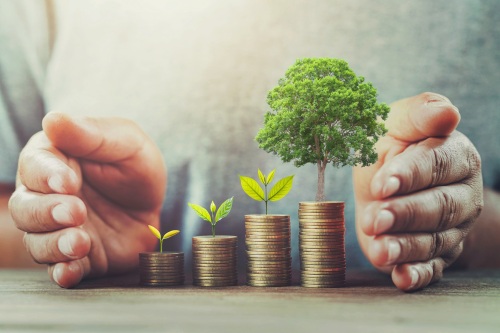Event Report: Global GX and Finance Conference in Sapporo
On December 16 (Monday) and 17 (Sunday), 2024, in Sapporo, Hokkaido, discussions were held about renewable energy development and GX finance, which are progressing through the collaboration of various sectors including Team Sapporo-Hokkaido, industry, government, academia, and finance. The discussions also covered Japan’s GX industry, which is accelerating in various fields using Hokkaido as a stage.
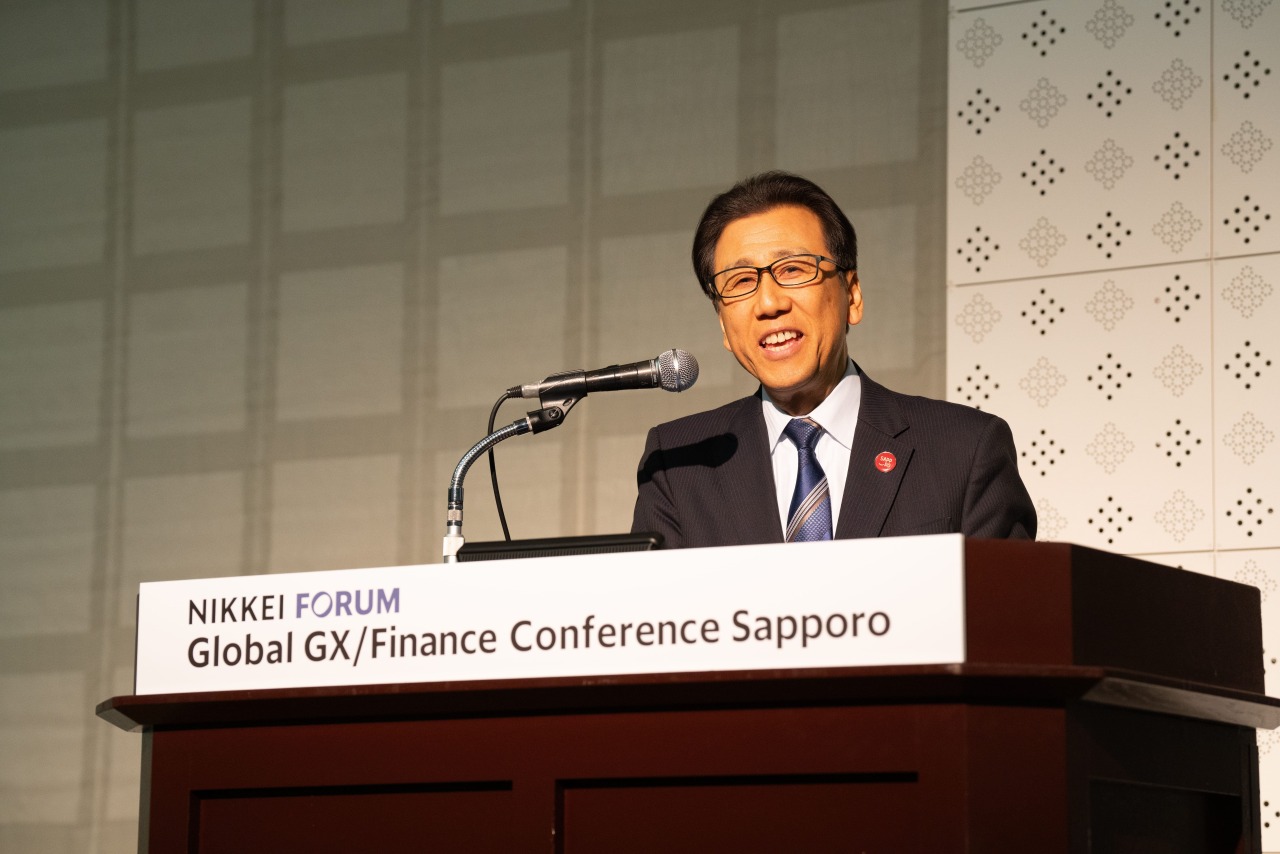
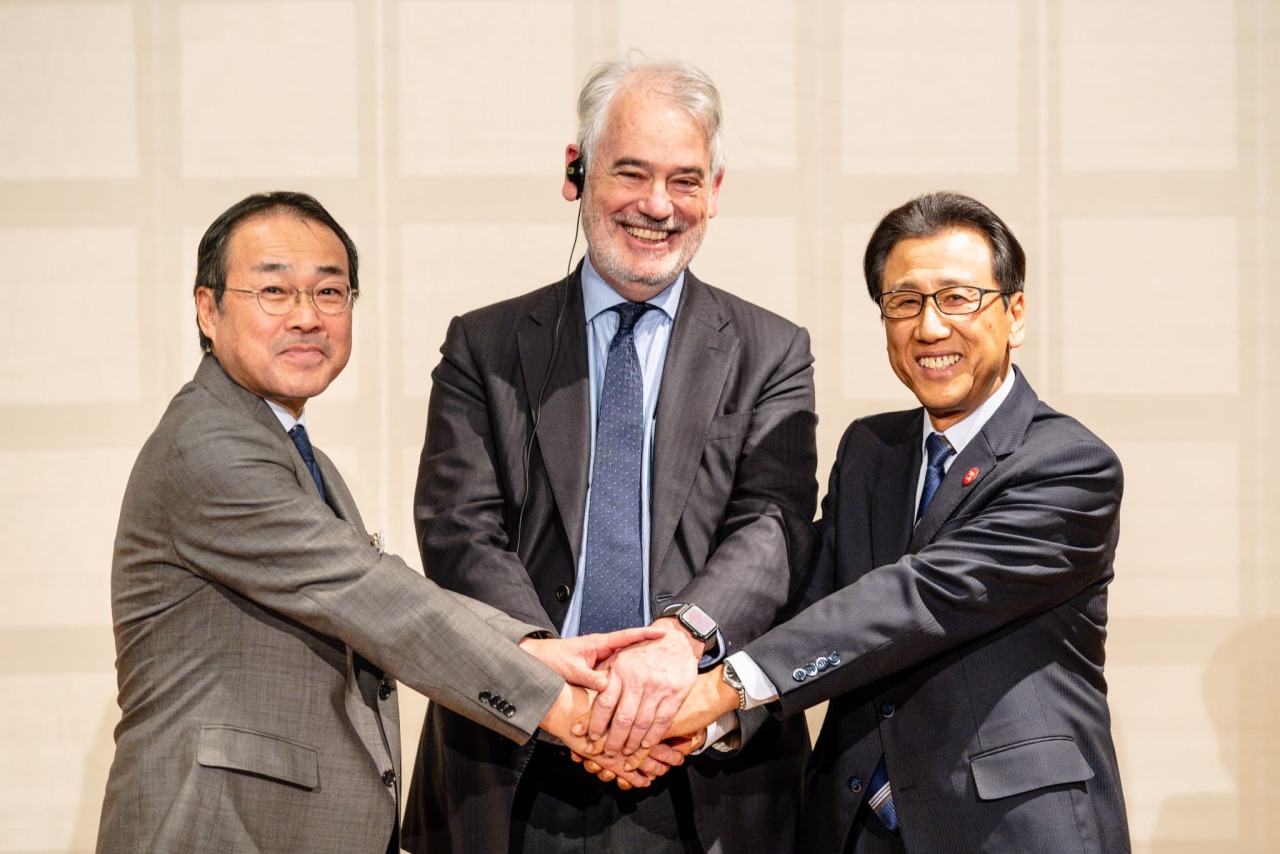
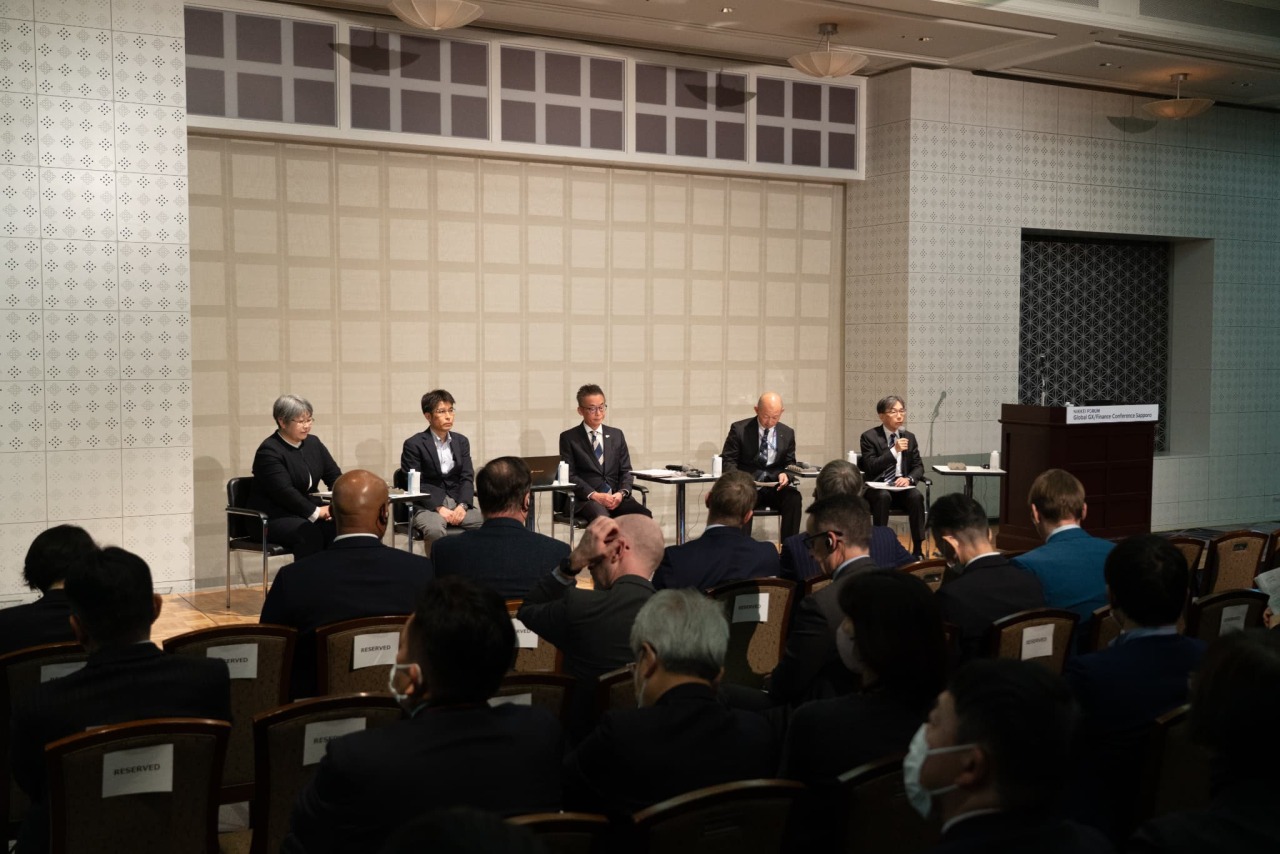
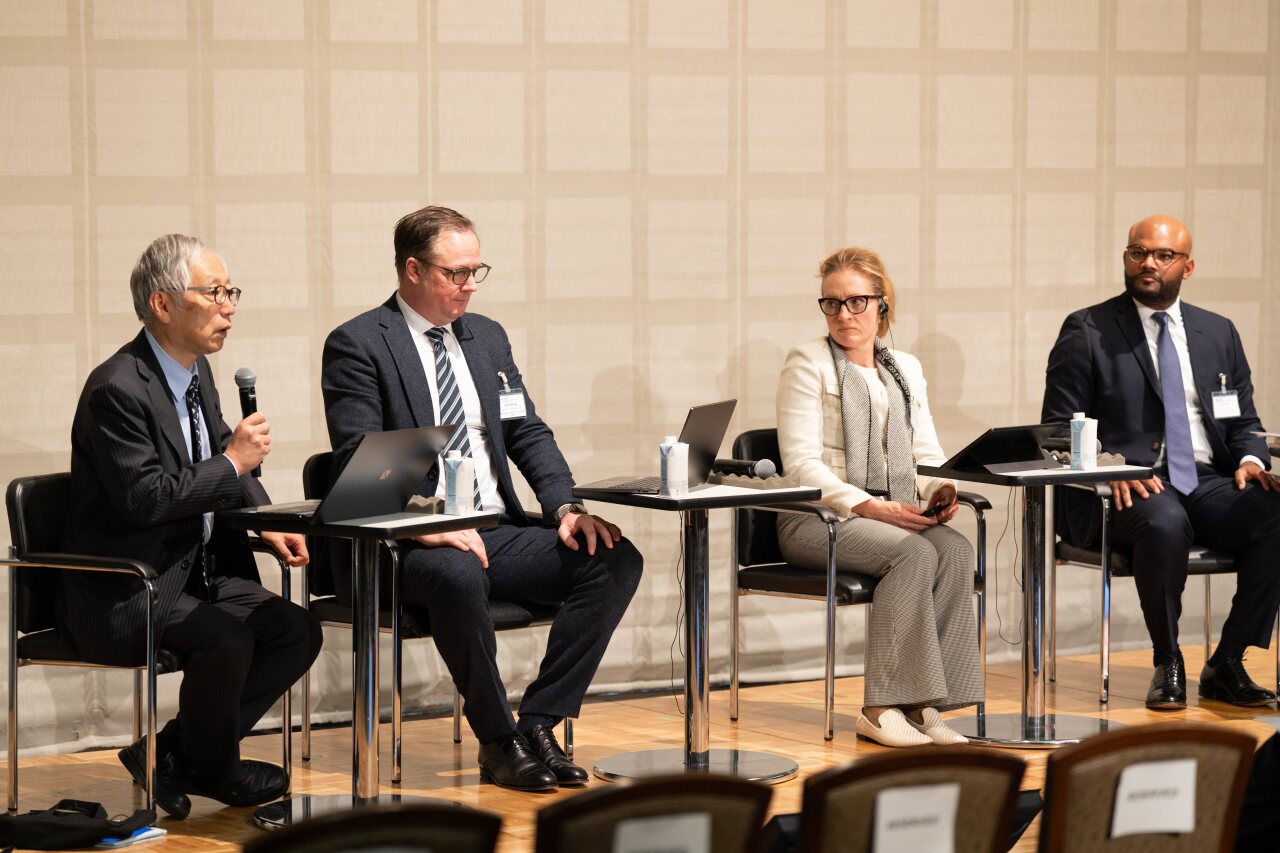
Session Report: “Riding the GX Wave – The Renewable Energy Frontier, Hokkaido”
In this session, as Hokkaido draws attention as a model case for Green Transformation (GX), the possibilities and challenges of renewable energy projects were broadly discussed.
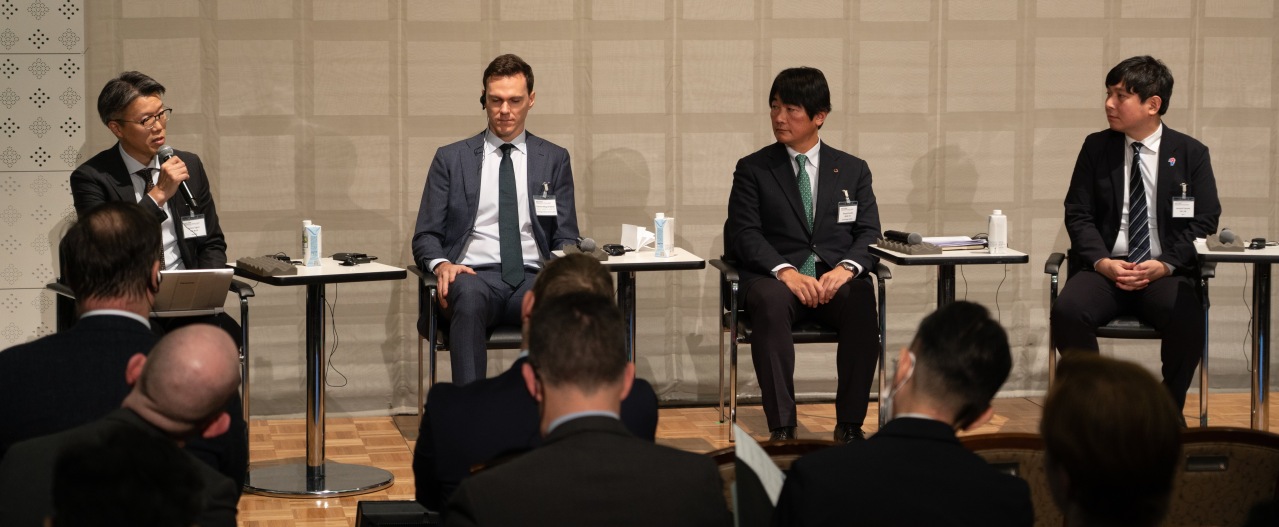
● Speakers
Koukei Fukuoka
Agency for Natural Resources and Energy
Director of the Wind Power Promotion Office
Hokkaido GX Promotion Officer
Tetsuya Suwabe
Eurus Energy Holdings
President
Clément Helbig de Balzac
Copenhagen Offshore Partners
Japan Representative
Moderator
Kentaro Ogura
Nikkei Inc.
Editor-in-Chief of NIKKEI GX
At the beginning of the session, the discussion centered around the current state of Hokkaido’s GX. Mr. Fukuoka, in his capacity as Hokkaido GX Promotion Officer, who is driving the introduction of renewable energy, stated, “Hokkaido possesses optimal wind conditions and terrain for wind power generation, and especially in the northern region, infrastructure development like private power lines and storage facilities is progressing.” However, he also pointed out, “There are still challenges such as weak grid connections and a lack of infrastructure,” emphasizing the importance of resolving these issues.
Mr. Suwabe, who is developing wind power projects in Hokkaido, stated, “We are starting efforts to attract data centers that will consume large amounts of electricity in the future to adjacent areas.” He expressed the view that exploring demand-side opportunities will be key to expanding renewable energy projects in Hokkaido.
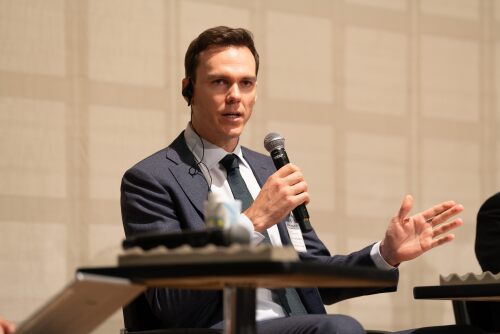
Regarding coexistence with the local community, Clément from a Denmark-based offshore wind power company emphasized the importance of working closely with local stakeholders, such as fishing cooperatives, to gain support for offshore wind projects in Denmark. He noted that job creation for fishermen and utilizing regional funds are essential for building trust with local residents.
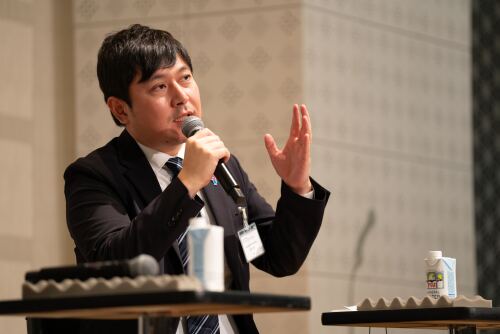
Furthermore, advanced cases from the UK and Denmark also became central to the discussion. Mr. Fukuoka stated, “The risk mitigation strategies of Denmark and the two-stage approach of the UK, among other highly transparent systems, can serve as references for Japan.” He emphasized the need for regulatory reforms to ensure the efficiency and stability of projects by leveraging such international insights.
As a summary of the session, Mr. Ogura, who served as the moderator, pointed out, “Hokkaido not only serves as a renewable energy supply area but also has suitable conditions for setting up data centers, with an expectation for the fusion of renewable energy and digital transformation (DX).” There was a consensus that building a sustainable industrial model based in Hokkaido will be key to accelerating the promotion of GX in Japan.
Locally Produced and Consumed New Energy Development—From Hydrogen to Biomethane
In this session, the challenges and possibilities of sustainable energy projects were discussed through examples of locally produced and consumed new energy development in Hokkaido. The main topics were the generation and use of biomethane and hydrogen utilizing local resources, as well as efforts to build ecosystems.
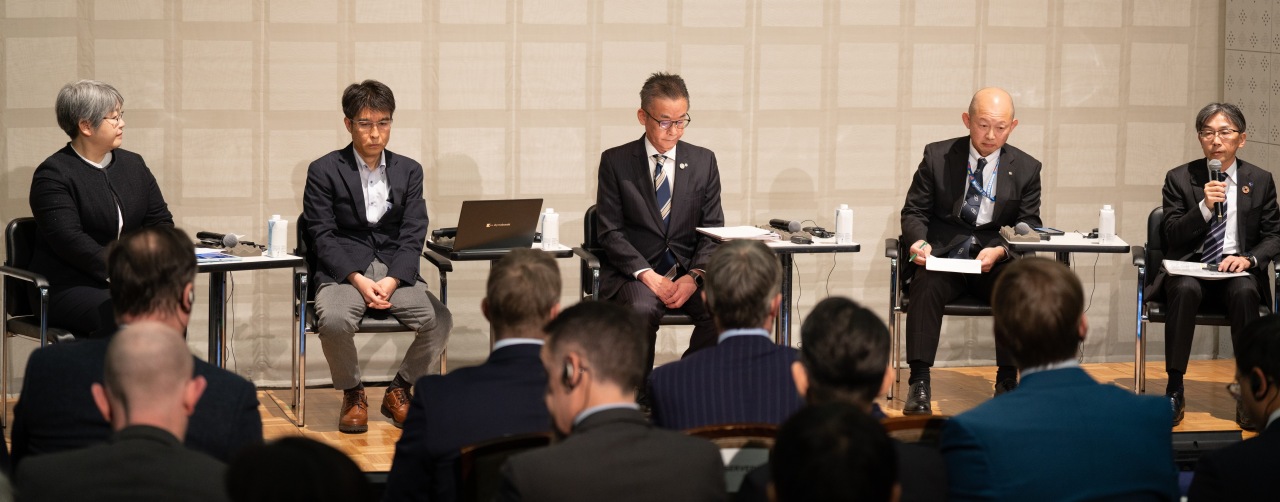
● Speakers
Ryousuke Matsubayashi
Air Water Inc.
President
Motoro Ide
Yotsuba Milk Products Co., Ltd.
Executive Director
Tomoki Kii
Mayor of Shikaoi Town
Yuuji Oshima
Japan Research Institute
Research & Consulting Division
Sustainable Society Design Group
General Manager
Moderator
Sonoko Watanabe
Nikkei Inc.
Senior Executive Officer
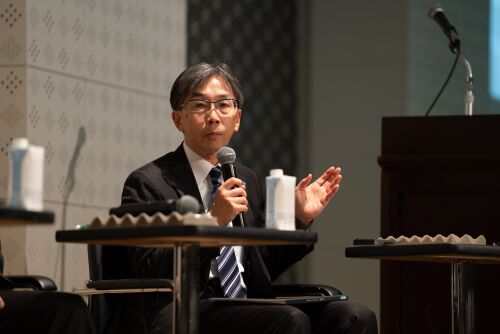
Mr. Matsubayashi, who promotes sustainable energy supply by utilizing local natural resources, stated, “In the Tokachi region, we are producing approximately 62,000 tons of biomethane annually from livestock manure generated by 250,000 dairy cows. This energy is used to supply power to Yotsuba Milk Products’ factories and is also planned to be used as rocket fuel at the Taiki Spaceport.” He highlighted the contribution to the local economy and the pathway to achieving a decarbonized society.
Mr. Ide from Yotsuba Milk Products, a dairy manufacturer based in Hokkaido, mentioned, “We have established technology that allows boilers to operate stably, even when using 100% liquefied biomethane. Since May this year, we have been fully utilizing liquefied biomethane as the energy source for our entire factory.” He noted that they have overcome technical challenges to achieve stable operation. He expressed confidence, saying, “By utilizing manure emitted by dairy farmers, converting it into biogas, and further utilizing it as liquefied biomethane, if this circular system is established, it can also contribute to the stable supply of raw milk.”
Located in the northwest of the Tokachi Plain, Shikaoi Town is one of the leading dairy regions in Japan, producing approximately 120,000 tons of raw milk annually. Mr. Matsubayashi highlighted, “In Shikaoi Town, we generate 80 kg of hydrogen annually from livestock manure. This hydrogen supports the operation of fuel cell vehicles, and we have also adopted a technology that fixes carbon as carbon nanotubes. This enables the production of clean hydrogen and the utilization of byproducts.” He emphasized the potential of a model that maximizes the use of local resources.
Furthermore, Mr. Matsubayashi pointed out that “deregulation, operational support for businesses, and demand creation are the three keys” to advancing GX. He stated, “Flexible responses to laws such as the High Pressure Gas Safety Act, support through price compensation and subsidies, and a system that creates a virtuous cycle of supply and demand are necessary,” emphasizing the importance of public-private collaboration.
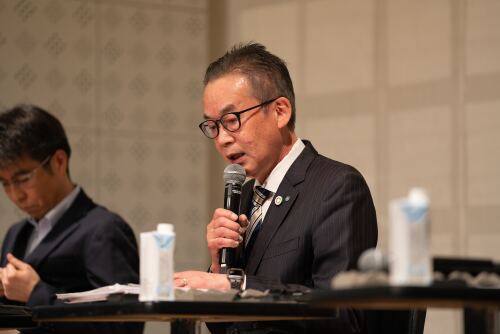
Mr. Kii, the Mayor of Shikaoi Town, explained, “Biomass projects derived from livestock have social value, such as environmental conservation and the promotion of local employment.” He suggested, “By introducing a system to evaluate these projects and an outcome-based model, we can enhance the sustainability of the projects and involve more participants.”
Hokkaido presents a successful example of locally produced and consumed energy development. By maximizing the use of local resources, it demonstrates a model that balances decarbonization and revitalization of the local economy, attracting attention for its potential to be expanded to other regions and for the creation of new industries.
The Potential for Japan-Denmark Offshore Wind Power Cooperation
In the session, the potential for cooperation in offshore wind power and hydrogen energy between Japan and Denmark was discussed, leveraging Denmark’s extensive experience in the renewable energy sector.
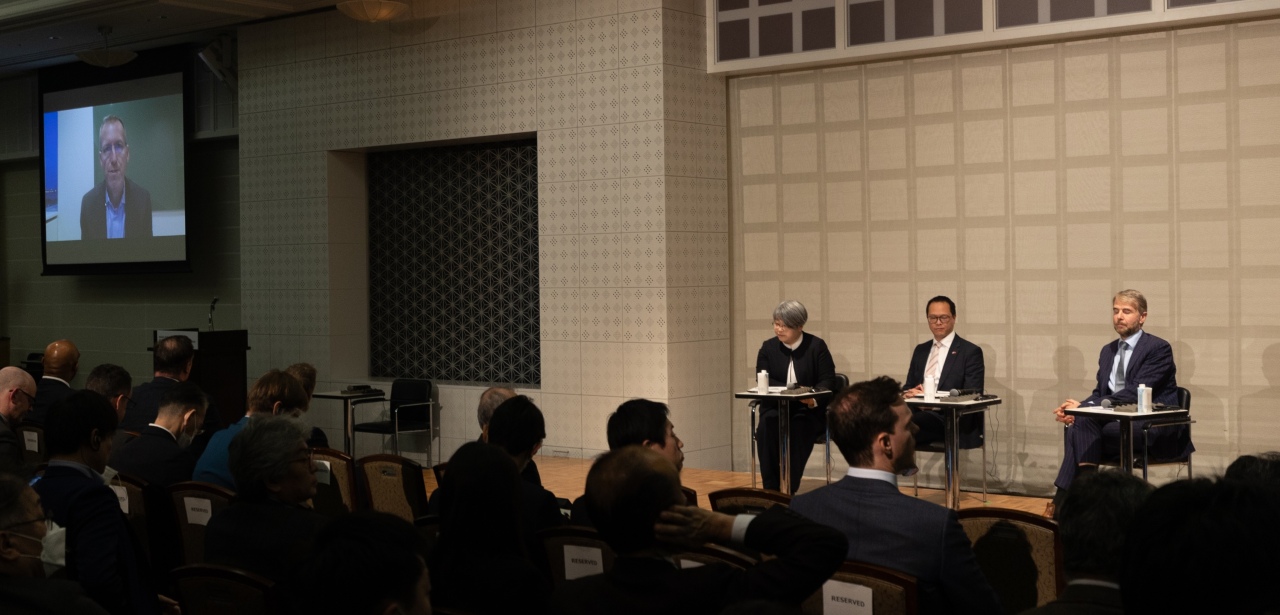
● Speakers
Jarl Frijs-Madsen
Incoming Danish Ambassador to Japan
William Lin
Danish Energy Agency
Head of Japan Program
Tom Weil Jensen
※ Appearing via online video
Danish Insurance and Pension Association
Deputy Director
Lars Ulrik Jensen
※ Appearing via online video
Denmark Export and Investment Fund (EIFO)
Associate Director of the Wind Power Team
Moderator
Sonoko Watanabe
Nikkei Inc.
Senior Executive Officer
Denmark accelerated its transition to renewable energy following the 1973 energy crisis. Today, it supplies 85% of its electricity from renewable sources, with more than half of that coming from wind power.
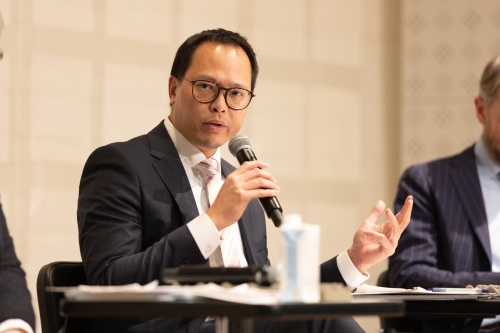
“The evolution of energy policy requires a long-term perspective,” stated William Lin from the Danish Energy Agency.
“We have set a goal to reduce greenhouse gas emissions by 70% by 2030, but this is by no means an easy path. Nonetheless, the government is fully committed to expanding the use of renewable energy,” he remarked, noting the ongoing efforts in the utilization of biogas and green hydrogen.
Jarl Frijs-Madsen, the incoming Danish Ambassador to Japan, emphasized the significance of the Denmark-Japan partnership and expressed optimism about the synergy between the two countries in the green energy sector. “Denmark’s experience in green energy is highly beneficial to support Japan’s energy transition. I am confident that by working together, our two countries can discover innovative solutions,” he stated.
Tom Weil Jensen, Deputy Director of the Danish Insurance and Pension Association, explained, “Danish pension funds plan to invest $65 billion in renewable energy by 2030,” mentioning that this includes investments in Japan, particularly in Hokkaido.
Tom continued by stating that Hokkaido is highly regarded for its “significant growth potential as a renewable energy hub” due to its active agriculture and low population density. He also emphasized that “by enhancing its capability to supply energy to Honshu, Hokkaido is expected to play a supporting role in Japan’s overall Green Transformation.”
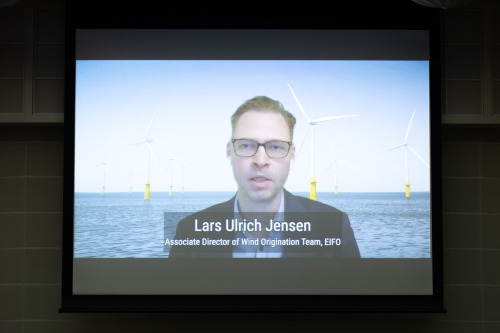
Lars Ulrik Jensen, who works on export promotion and investment support in Denmark, emphasized the importance of “transparency and regulatory predictability” in creating an investment-friendly environment. He added that “ensuring long-term profitability is key to attracting international investments.” He pointed out that in Denmark, the clarification and consistency of policy goals are factors promoting investment, suggesting that this model could serve as a reference for Japan.
In Denmark, where wind turbines are considered “symbols of renewable energy,” renewable energy has driven economic growth and significantly contributed to revitalizing local economies. The session discussed how learning from these success stories and challenges could further accelerate Japan’s energy transition.
In conclusion, moderator Sonoko Watanabe stated, “The cooperation between Japan and Denmark not only contributes to concrete advancements in offshore wind power and hydrogen energy but also points out new pathways toward revitalizing local economies and realizing a sustainable society.”
Panel Discussion: GX Through International Collaboration—The Current State and Future of Climate Change Policies
In this session, the importance of international collaboration in Green Transformation (GX) was a central theme, with discussions on the policies and investment strategies of Japan, the U.S., and Asia. Under the moderation of Yoichi Takita from Nikkei Inc., each speaker shared their perspectives.
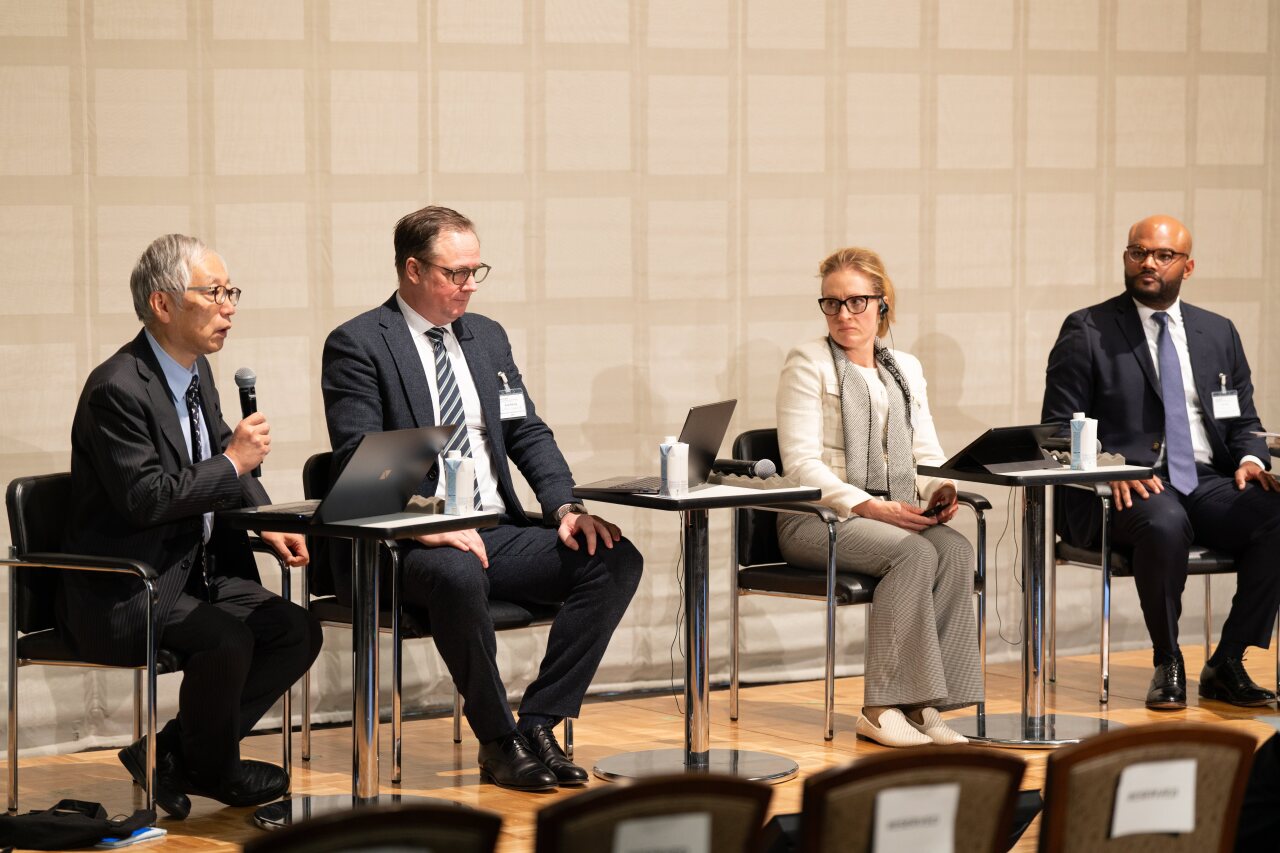
● Speakers
Jahi Wise
Former Special Assistant to the U.S. President (Climate Policy and Finance)
Rebecca Mikula-Wright
CEO of the Asia Investor Group on Climate Change (AIGCC)
Evan Felsing
Minister-Counselor for Economic and Scientific Affairs, U.S. Embassy in Japan
Moderator
Yoichi Takita
Contributing Editor, Nikkei Inc.

Jahi Wise, who served as a Special Assistant to the U.S. President focusing on climate policy and finance, argued that “climate change measures are not just a moral issue but also an economic initiative.” Regarding the Greenhouse Gas Reduction Fund (GGRF) in the U.S., he explained, “Funding for clean energy projects, emission reductions, and local job creation is advancing.” He also stated, “Global cooperation is the key to turning crisis into opportunity,” emphasizing the necessity for countries to collaborate in addressing climate challenges.
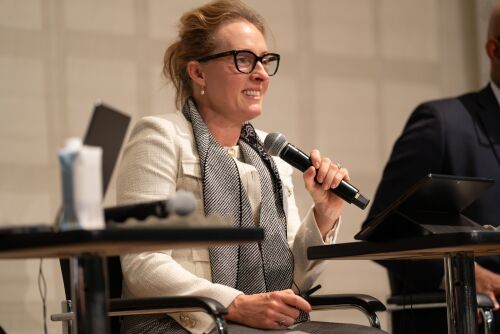
Rebecca Mikula-Wright, the CEO of the Asia Investor Group on Climate Change, explained the impacts of climate change and the current state of low-carbon investment in Asia. She pointed out that “heat waves and rising sea temperatures are causing economic damage,” and stressed the importance of Japan achieving its Net Zero target. She recommended “building a scenario that generates an economic benefit of $130 billion by 2050 and establishing policies that attract investment.”
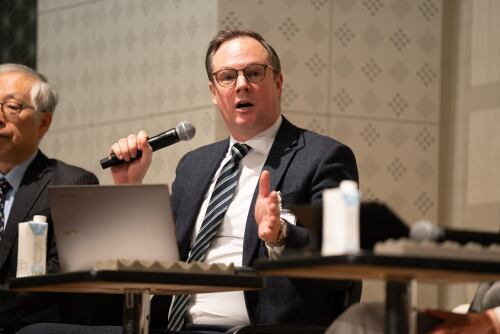
Evan Felsing, the Minister-Counselor for Economic and Scientific Affairs at the U.S. Embassy in Japan, highlighted the necessity of Japan-U.S. collaboration. He explained, “Through the utilization of the Inflation Reduction Act (IRA), Japanese companies, such as Panasonic, are actively investing, including a $4 billion investment in an EV battery factory in the U.S.” He noted that this facilitates “business expansion in the clean energy sector, and further public-private cooperation is needed.”
Throughout the session, the balance between economic growth and environmental conservation emerged as the central theme. It was affirmed that strengthening collaboration among industry, politics, and investors, while considering the impacts of changes in administration and policy shifts, is key to “solving global challenges and building a new economic growth model.”
Lecture
In the keynote speech by Mr. Arita from BlackRock Japan, the Japanese branch of the world’s largest asset management company, he stated, “Green Transformation (GX) is a historic investment opportunity that will bring profound changes to the economic society, and this movement is progressing irreversibly.” He emphasized the importance of investment centered on public-private collaboration.
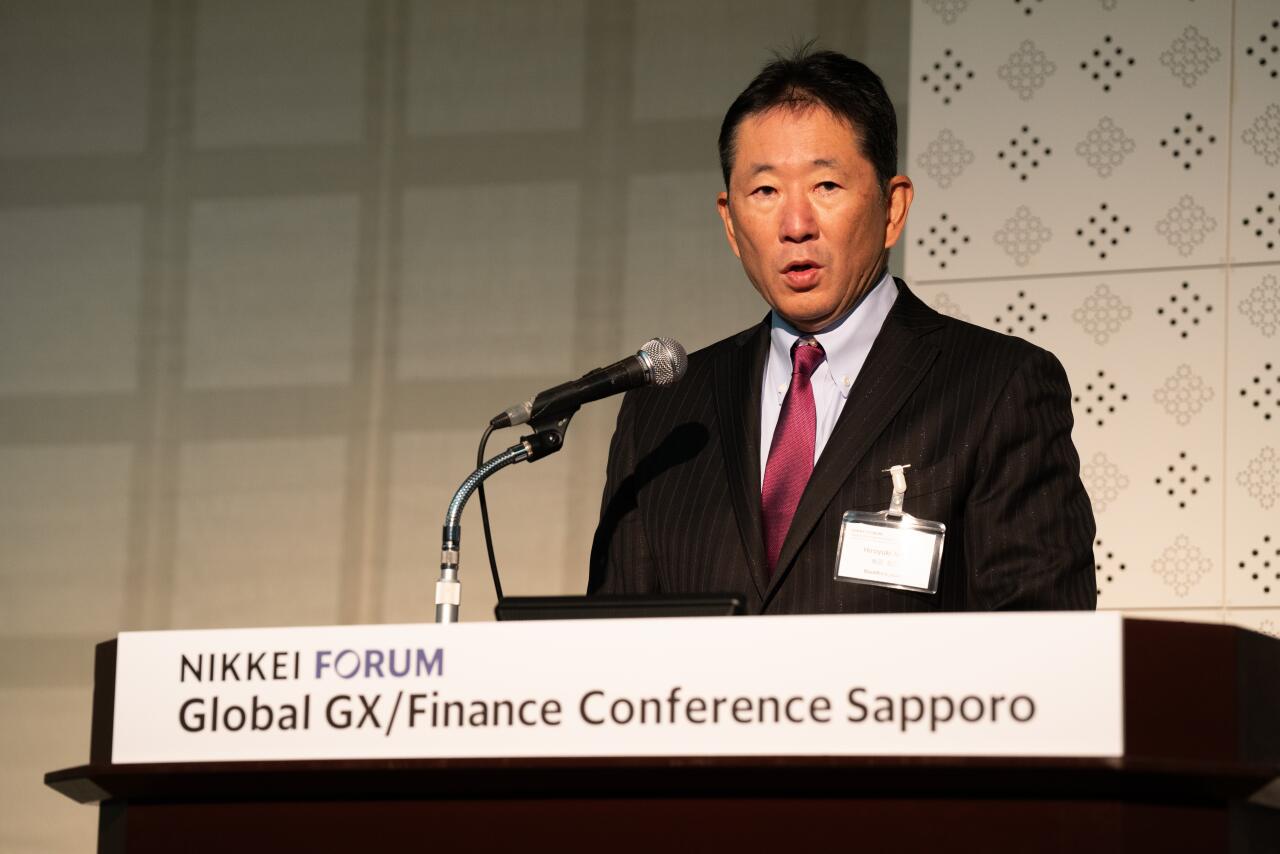
● Speaker
Hiroyuki Arita
BlackRock Japan
President & CEO
He highlighted that “promoting GX will require $4 trillion (approximately 600 trillion yen) in investment over the next 30 years.” He stated, “We should allocate funds progressively to both high-emission and low-emission sectors to aim for an orderly transition.” Additionally, regarding BlackRock’s proposed “energy pragmatism,” he explained that “a pragmatic policy that balances economics and decarbonization by using both renewable energy and fossil fuels is needed.”
Regarding infrastructure investment, he mentioned Global Infrastructure Partners (GIP), the world’s largest independent infrastructure investment manager acquired by the company. “We have built an investment platform of approximately 26 trillion yen, focusing on the energy, transportation, and digital sectors. Through this, we aim to actively contribute to Japan’s GX-related infrastructure projects,” he projected.
Furthermore, he stated, “Blended finance will be key to supporting public-private collaboration,” highlighting the need for mechanisms where the public sector complements private risks. He concluded by saying, “Through corporate governance and dialogue with investors, we will build an ecosystem that supports sustainable growth.”
Sustainable Finance: Sapporo’s Potential as an International Financial City for GX
The final session wraps up the two-day forum, focusing on Sapporo’s potential as a hub for promoting Green Transformation (GX). In this session, the potential of Hokkaido and its possibilities from an international perspective were discussed.
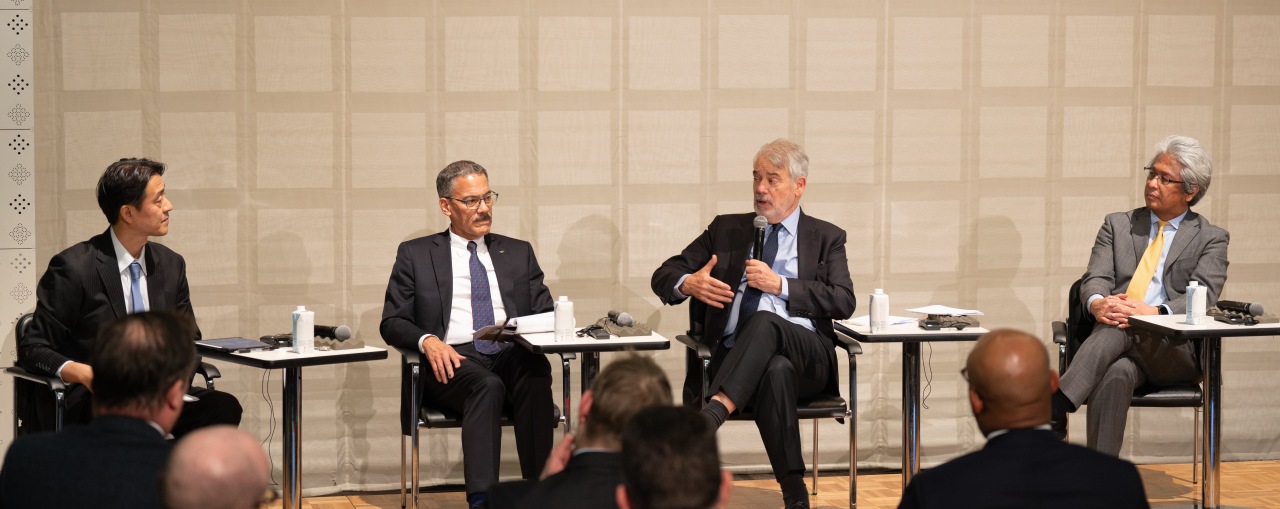
● Speakers
Satoshi Ikeda
Financial Services Agency
Director-General of the Strategy Development Division
Sean Kidney
Climate Bonds Initiative
CEO
Bart Hutter
Connecticut Green Bank
Chief Investment Officer (CIO)
Moderator
Hideki Takada
GX Promotion Organization
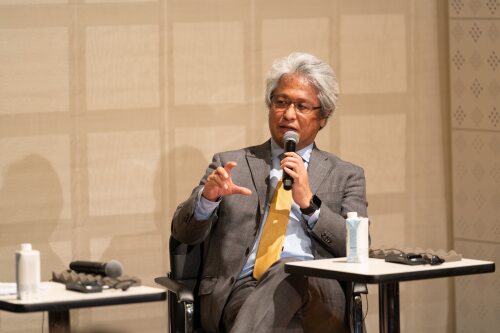
Satoshi Ikeda, Director-General of the Strategy Development Division at the Financial Services Agency, pointed out that “the GX resources and opportunities embedded in Hokkaido are as significant as those during the Industrial Revolution.” He emphasized the critical role Sapporo should play in shifting towards renewable energy. Ikeda also mentioned, “A shift from banking operations to asset management business is necessary for the Japanese economy,” highlighting the importance of circulating Japan’s deposits and assets into global investments. Furthermore, he suggested that Sapporo should “enhance its function as a hub for mobilizing risk capital.”
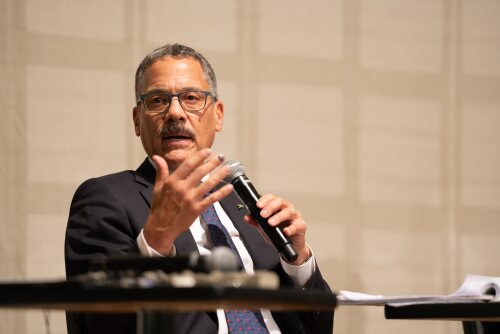
Bart Hutter, Chief Investment Officer of the first green bank in the United States, shared examples from his experience, suggesting that successful GX requires “a clear message, bond guarantees, tax incentives, and special products like green funds.” He also stressed the importance of international networks, stating, “Together with green finance organizations from the UK, Australia, and Japan, we are building a green bank network to spread the concept.”

Sean Kidney, CEO of an international non-profit organization aimed at promoting funding for climate change measures, stated that “the green bond market has generated potential worth $5.5 trillion so far.” He emphasized the importance of viewing Japan’s challenges as new industrial opportunities. Furthermore, he suggested that “building a societal system based on climate change mitigation and resilience is essential.”
Moderator Hideki Takada concluded that the keys to future growth include “financial companies mastering their role as intermediaries, increasing investment assets and liquidity, and strengthening the driving force for collaboration across sectors.”
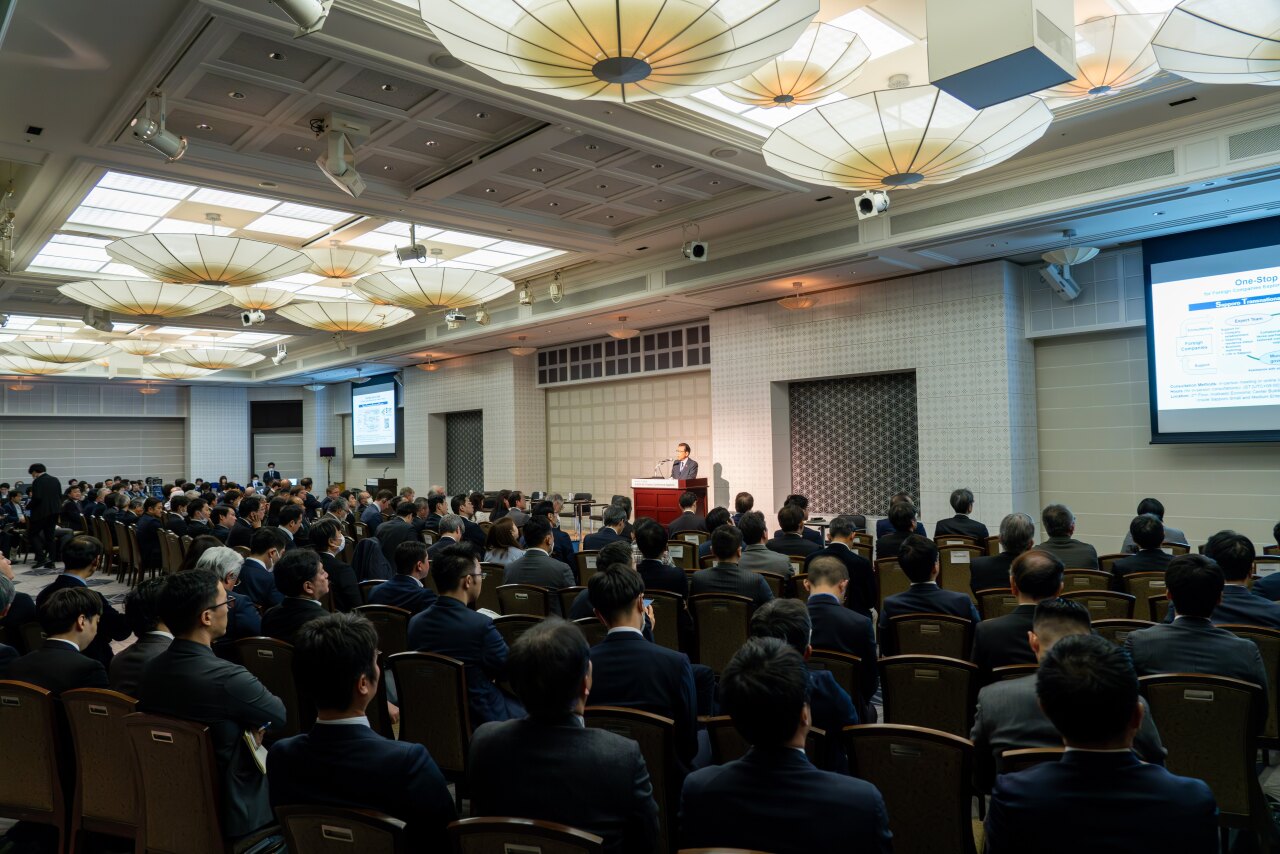
After the forum, Japanese think tanks present at the event expressed that “the presentation of a GX scenario leading to the development of advanced industries like data centers and semiconductors, along with the showcasing of cutting-edge global examples, was extremely significant. The convergence of industry, academia, and government in Sapporo, filled with an international perspective, to deepen discussions for creating comprehensive value through GX, is expected to result in tangible investment outcomes in the future.” This highlighted how meaningful and valuable the two-day event was.
Many speakers touched on not only economic value but also the pursuit of social value through coexistence with local communities. It was particularly memorable, and the individual expressed hope by stating, “With this spirit of coexistence, I believe Hokkaido and Sapporo can generate significant GX investment outcomes even amidst complex social transformations.”
On the first day of the forum, a joint statement on GX promotion and regional revitalization was also announced by the Climate Bonds Initiative, Hokkaido, and Sapporo.
https://tsh-gx.jp/engagement/jointstatement/










